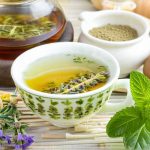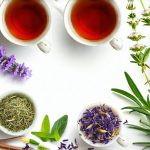The gentle ritual of sipping herbal tea is often associated with calm, wellness, and natural healing. Many turn to these infusions as alternatives to caffeinated beverages or as supportive therapies for minor ailments. However, what begins as a soothing practice can sometimes unexpectedly lead to digestive upset, specifically loose stools. While generally considered mild and temporary, experiencing diarrhea or frequent bowel movements after consuming herbal tea can be unsettling and raises questions about the underlying causes and how to prevent it. It’s important to understand that “herbal” doesn’t automatically equate to “harmless,” and even seemingly benign teas can have potent physiological effects when consumed in excess or without proper consideration of individual sensitivities.
Herbal teas are incredibly diverse, ranging from chamomile and peppermint, known for their calming properties, to senna and cascara sagrada, historically used as natural laxatives. The wide spectrum of ingredients means the potential impact on digestive health varies dramatically. A seemingly innocent increase in hibiscus tea consumption could lead to a surprisingly loose stool experience, while consistent use of teas marketed for “detox” or “cleansing” often contains ingredients with known diuretic and purgative effects. Understanding the composition of your chosen tea, its intended purpose, and your own body’s reaction is crucial for enjoying these beverages without unwanted side effects. This article will explore how overuse of herbal tea can trigger loose stools, common culprits, and strategies to mitigate digestive discomfort.
The Laxative Effect & Herbal Tea Composition
Certain herbs possess inherent laxative properties, meaning they stimulate bowel movements. While this can be beneficial for individuals experiencing constipation, excessive consumption or use by those with sensitive systems can easily lead to diarrhea. Common examples include senna, cascara sagrada, aloe vera (in some forms), and rhubarb – frequently found in teas marketed for weight loss or detoxification. These herbs work through various mechanisms: some increase intestinal motility (the speed at which food moves through the digestive tract), others draw water into the intestines, softening stool, and still others stimulate nerve endings in the colon.
Beyond dedicated laxative herbs, other seemingly mild ingredients can contribute to loose stools when overused. Peppermint tea, beloved for its soothing effect on the stomach, can also relax the intestinal muscles, accelerating digestion. Similarly, dandelion root, often touted as a liver cleanser, has a mild diuretic effect and can stimulate bowel activity. Even green tea, known for its health benefits, contains tannins that can have a laxative effect in some individuals. The key lies not just in what herbs are present, but also in the concentration and quantity consumed.
The growing popularity of “detox” teas is particularly concerning. These often contain blends with high concentrations of these potent herbs, marketed as quick fixes for digestive issues or weight loss. While manufacturers may list ingredients, the precise amounts can be difficult to ascertain, leading to accidental overconsumption. It’s vital to scrutinize ingredient lists and research individual components before consuming any herbal tea blend, especially those promising dramatic results. Furthermore, combining multiple teas with laxative effects increases the risk of digestive upset. Understanding how your gut reacts to certain ingredients can help you make informed choices.
Identifying Common Culprit Teas
Determining which specific tea is causing loose stools can be tricky, as reactions vary from person to person. However, some teas are more frequently associated with diarrhea than others.
- Senna and Cascara Sagrada: These are strong laxatives and should be used cautiously, if at all, without medical supervision. Even a single cup of tea containing these herbs can cause significant bowel movements in sensitive individuals. Long-term use can lead to dependency and reduced colon function.
- Rhubarb Tea: Similar to senna and cascara sagrada, rhubarb possesses potent laxative properties due to the presence of sennosides.
- Aloe Vera Tea: While aloe vera gel is sometimes used for digestive issues, certain forms of aloe vera tea can contain aloin, a strong laxative that should be avoided or consumed in very limited quantities.
- Green Tea (in excess): The tannins present in green tea can stimulate bowel movements, particularly when consumed in large amounts.
- Chamomile & Peppermint (high consumption): While generally gentle, excessive intake of chamomile or peppermint tea can lead to digestive upset due to their relaxing effect on intestinal muscles.
It’s also important to consider the source and quality of your tea. Teas from less reputable sources may contain higher concentrations of active ingredients or contaminants that contribute to digestive problems. Always opt for certified organic teas from trusted brands. Look for transparency regarding ingredient sourcing and processing methods. If you suspect a deeper issue, exploring hidden gut issues through advanced diagnostics could be beneficial.
Understanding Individual Sensitivities & Pre-existing Conditions
Everyone’s digestive system is unique, and what one person can tolerate another might find problematic. Factors influencing sensitivity include:
- Gut Microbiome: The composition of your gut bacteria plays a significant role in how you digest food and herbal compounds. An imbalanced microbiome can make you more susceptible to digestive upset.
- Pre-existing Digestive Conditions: Individuals with Irritable Bowel Syndrome (IBS), Crohn’s disease, ulcerative colitis, or other gastrointestinal disorders are particularly vulnerable to the effects of laxative herbs. Even mild ingredients can exacerbate symptoms. Understanding reflux symptoms is also important as they can be connected to overall digestive health.
- Hydration Levels: Dehydration can worsen diarrhea and make it more difficult for your body to process herbal compounds effectively.
- Medications: Certain medications can interact with herbal teas, either increasing their potency or causing adverse side effects.
If you have any underlying health conditions or are taking medication, it’s crucial to consult a healthcare professional before incorporating herbal teas into your routine. They can assess your individual risk factors and provide personalized guidance. Pay close attention to your body’s signals – if you experience bloating, gas, cramping, or loose stools after drinking a particular tea, discontinue use immediately. Consider whether a lack of stomach acid might be contributing to your digestive issues.
Mitigating Digestive Discomfort & Prevention Strategies
If you’ve experienced loose stools from herbal tea overuse, here are some steps you can take:
- Stop Consumption: The first and most important step is to stop drinking the offending tea immediately.
- Hydrate Adequately: Drink plenty of water to replenish fluids lost through diarrhea. Electrolyte-rich beverages (like coconut water or oral rehydration solutions) can also be helpful.
- Bland Diet: Stick to a bland diet consisting of easily digestible foods like bananas, rice, applesauce, and toast (the BRAT diet). Avoid fatty, spicy, or sugary foods which can further irritate the digestive system.
- Probiotics: Consider taking a probiotic supplement or consuming probiotic-rich foods (like yogurt or kefir) to help restore your gut microbiome.
- Mindful Consumption: When reintroducing herbal teas:
- Start with small amounts and observe your body’s reaction.
- Choose teas without known laxative ingredients.
- Avoid combining multiple teas with potential digestive effects.
- Read ingredient lists carefully and research individual herbs.
Prevention is always better than cure. By being mindful of the tea you choose, the quantity you consume, and your own body’s sensitivities, you can enjoy the benefits of herbal infusions without unwanted digestive side effects. Remember that natural doesn’t necessarily mean safe, and a cautious approach is essential when incorporating herbal remedies into your wellness routine. The benefits of herbal teas for gas relief can be significant, but moderation is key. If symptoms persist or worsen, seek medical attention. Also explore herbal teas in digestive wellness.


















